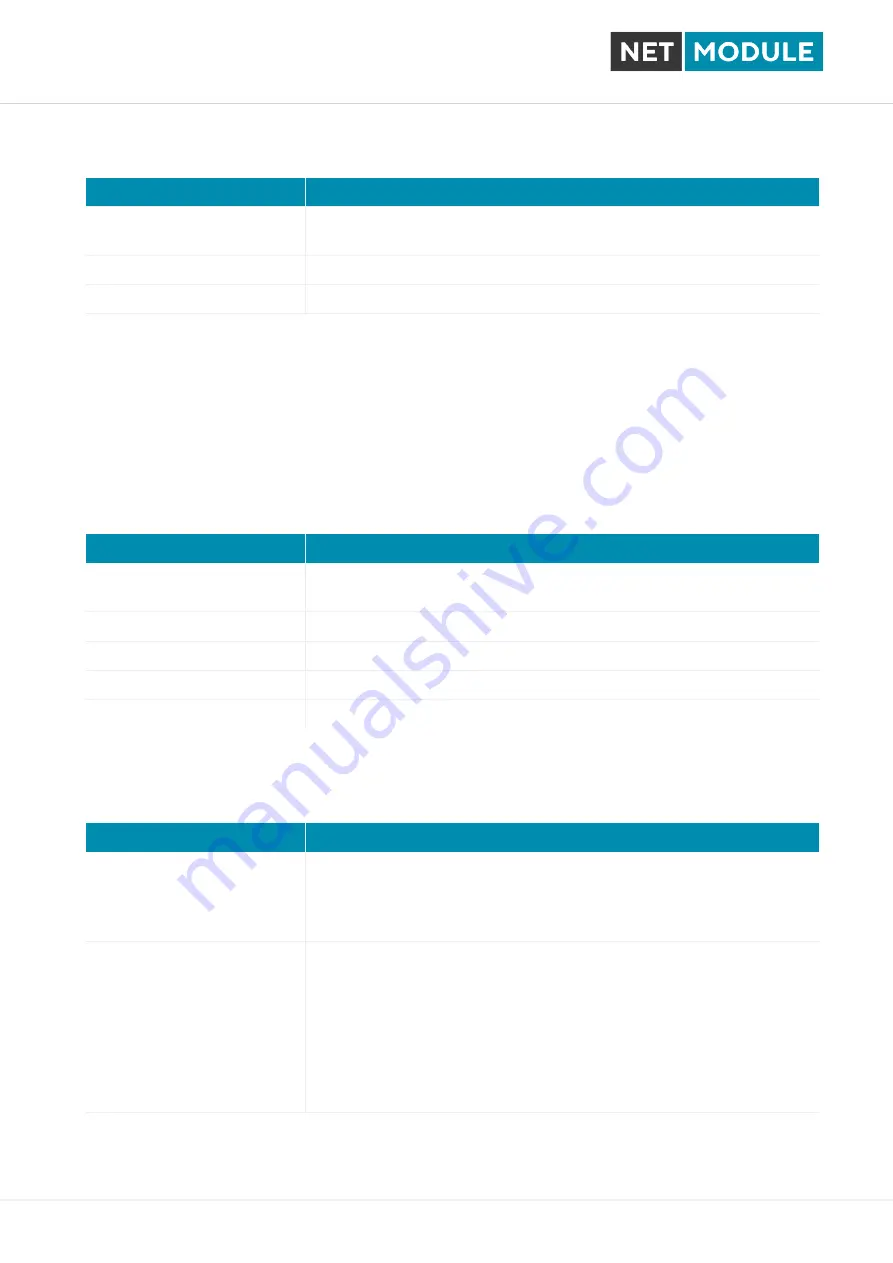
NG800
User Manual for NRSW version 4.5.0.100
Parameter
Voice Gateway Administration Settings
SIP interface
Specifies the interface (LAN or WAN) on which the agent should listen
for incoming calls
SIP port
Specifies the agent’s listening port
SIP register expires
Specifies the registration interval in seconds
In case you are running multiple WWAN interfaces sharing the same SIM, please bear in mind that the
system may switch SIMs during operation which will also result in different settings for voice commu-
nication.
Voice Endpoints
On this page you can activate the endpoints used for voice communication, the following types are
supported:
Parameter
Voice Gateway Endpoint Types
Voice-Over-Mobile
Endpoint for GSM/UMTS/LTE calls (can be used for calls to mobile or
landline phones)
SIP (registrar)
SIP endpoint which can be a client registered to our registrar
SIP (direct)
Endpoint for calls directly routed to a SIP agent without registration
SIP (user-agent)
Endpoint acting as SIP user agent towards a remote registrar
Based on your equipment, we recommend to adjust the modem’s audio profile for a better sound
experience. The following profiles are available:
Parameter
Voice-Over-Mobile Audio Profiles
Handset
Provides a mild echo, short delay (less than 16-ms dispersion).
This mode is intended for use with a well-designed handset, where
the Echo Return Loss (ERL) is generally high. Full-duplex perfor-
mance is easiest to achieve in this mode.
Headset
Provides a moderate echo, short delay (less than 16-ms dispersion).
This mode is intended for use in situations where the echo may be
loud but low in delay. There are a variety of different headsets avail-
able with a wide variety of echo characteristics and noise pickup. Al-
though the echo delay is typically short (< 16 ms) with all headsets,
the echo return loss characteristics can vary significantly and are not
well known a priori to the handset designer. This mode is more robust
and more aggressive at echo cancellation.
156
















































